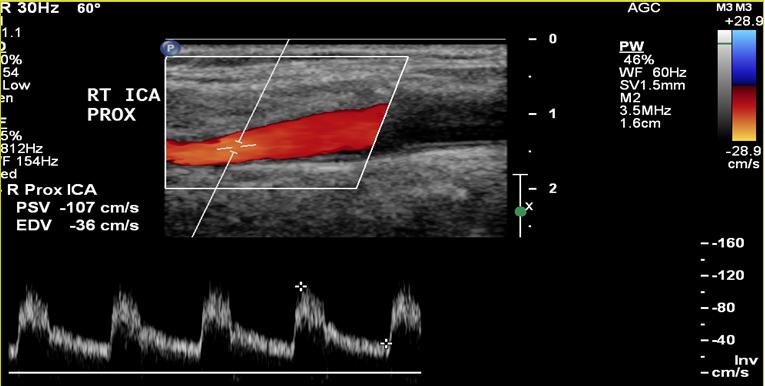Carotid artery (cerebrovascular)

Color flow Doppler of normal carotid arteries
Carotid artery disease is one of the most common causes of stroke. Identifying potentially treatable causes of stroke, such as severe carotid artery disease, is a key step in stroke prevention.
Evaluation of the arterial supply to the brain is a common study in the Vascular Lab. A complete extracranial cerebrovascular examination includes measurement of blood pressure in both arms and duplex scanning of the carotid arteries, vertebral arteries and the subclavian arteries on both sides.
A cerebrovascular study in the Vascular Laboratory may be requested to evaluate neurologic symptoms that might be due to vascular disease (such as one-sided loss of strength or sensation, difficulty speaking or transient loss of vision in one eye), a bruit in the neck (a sound heard with a stethoscope), or for other indications. Carotid artery duplex scanning is also used for post-procedure evaluation after surgery, such as carotid endarterectomy or carotid artery stenting.
No special preparation is required. A complete study usually takes about thirty minutes.
Evaluation by a specialist in the UC Davis Vascular Center will generally be recommended if there is a carotid artery narrowing of 80 percent or more, or if there have been neurologic symptoms and the carotid artery is found to be narrowed by 50 percent or more. Further evaluation or treatment may be recommended.
Many patients will be found to have only mild to moderate carotid artery disease. A follow-up study in the Vascular Lab offers a safe, non-invasive and accurate means to assess for progression of disease over time.
See also:
Diseases, conditions and their treatments: Carotid artery disease
